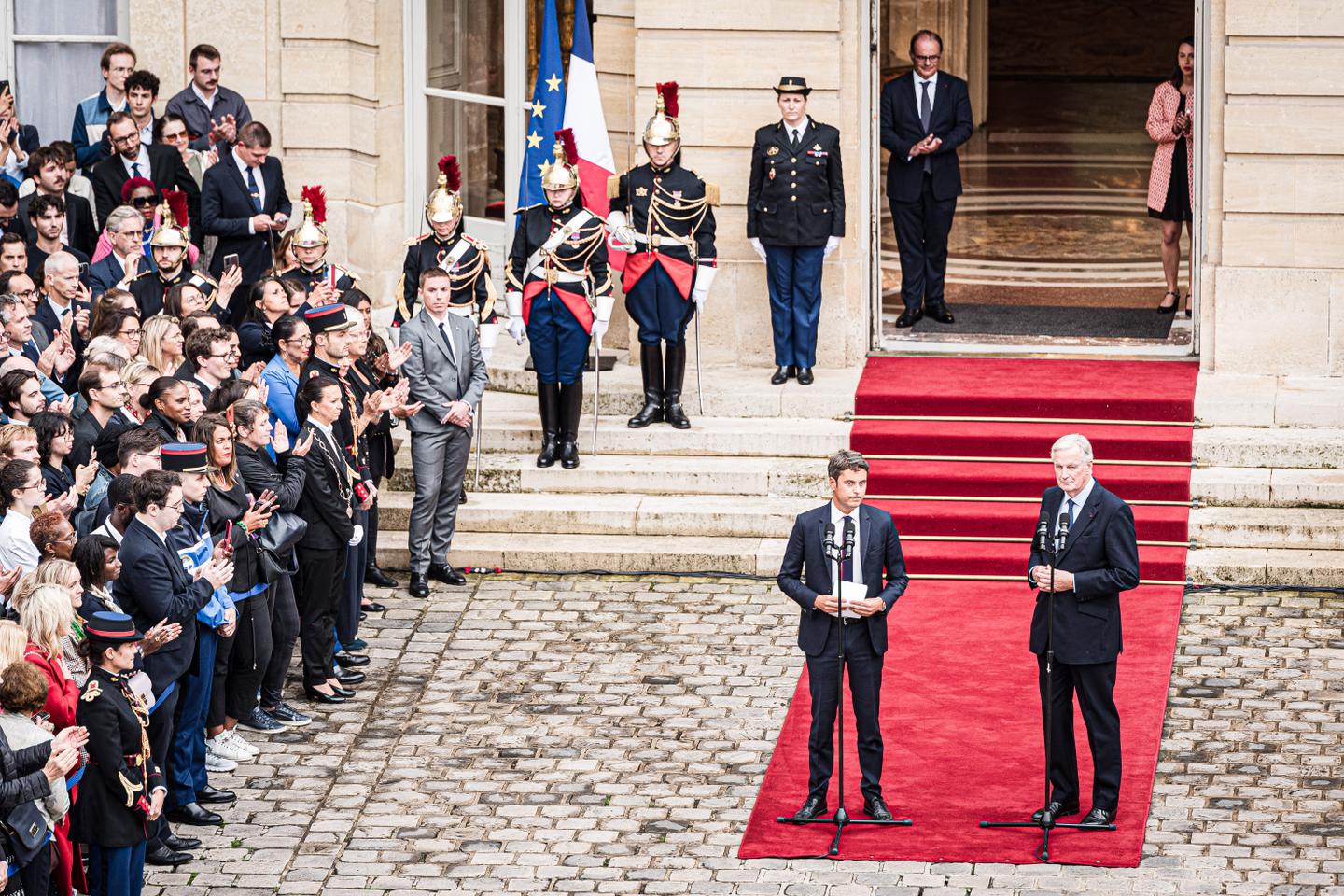


France has a new prime minister, but at what price? Sixty days after the second round of the parliamentary elections, which resulted in a defeat for his camp, President Emmanuel Macron has decided to take the country out of the political freeze in which he was improperly keeping it. At 73, former Brexit negotiator Michel Barnier has become the oldest prime minister of the Fifth Republic, succeeding the youngest, Gabriel Attal, 35, who was appointed in January and who made no secret of his "frustration" at having governed for only eight months.
The choice, by default, of an experienced negotiator, who, as soon as he was appointed, insisted on "change and rupture" but also on "listening and respect," is supposed to somewhat stabilize the political game at the end of the worrying summer that Macron opened by decreeing, on June 9, a dissolution of the Assemblée Nationale that quickly worked against him.
So far, the first effect the appointment of Barnier has had was to further damage the republican front that had been put in place, by many voters, to protect the country from the major danger to which Macron's inconsistent decision had exposed it: the accession of a far-right party and its racist and xenophobic ideology to power in France.
Democratic turmoil
While the left came out on top in the second round of the elections, it was a member of the right-wing Les Républicains, whose party exempted itself from this civic tradition, while taking advantage of it to save its own seats, who won the day. While the far-right Rassemblement National (RN), which still has 123 elected members in the new Assemblée Nationale, was supposed to be kept at arm's length, Marine Le Pen's party was the one that made the choice of Barnier possible by announcing that it would not reject him as prime minister from the outset. As a result, the future government will find itself under the watchful eye of an RN back at the heart of the political game, in the position of kingmaker.
The inarguable anomaly created by the choice of this prime minister is therefore far from closing the political crisis opened by the dissolution. Nor does it seem likely to reduce the crisis of confidence that is reflected in the electoral survey published by Le Monde on Friday, August 30. All parties share responsibility for this situation. After the long procrastination of the summer, the negotiations of the last few days have shown the extent to which the ability to reach a compromise and build a coalition has disappeared from French political culture. By immediately rejecting that method, the Nouveau Front Populaire left-wing alliance torpedoed its chances of imposing a candidate to be prime minister.
But Macron's delay in acknowledging his defeat, and his refusal to rely on the Assemblée Nationale to produce a stable majority, only aggravated this democratic turmoil. As has his tendency to believe that only one policy is possible, and that only one player is capable of implementing it.
Faced with the many perils of the day, Barnier vowed to respond to the "anger" and "suffering" of the French people, pointing in particular to access to public services, living standards, security and immigration. From the outset, the presentation of the budget bill for 2025 promises to be a formidable test. The new prime minister's chances of political survival depend on his negotiating skills. It is to be hoped that they will be deployed with the strictest respect for the principles on which our Republic is founded.
